On July 18, the world celebrates the birth of Nelson Mandela. In Burundi, this personality played a crucial role in the resolution of the 1993 crisis.
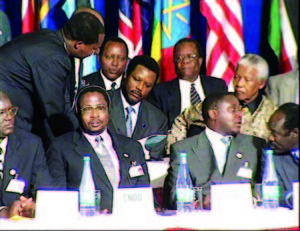
No one dared to question Mandela’s decision
Nelson Mandela cherished the ideal of a free and democratic society in which all the people would live together in harmony and with equal opportunities. He succeeded Julius Nyerere on December 1st, 1999 as mediator in the inter-Burundian talks formally initiated in June 1998. While maintaining the structure set up by Nyerere, he drove the G7 (Hutu ethnic group parties) and G10 (Tutsi ethnic group parties) to conclude an agreement. At first, he had addressed the Burundian issue with an approach drawn from his personal experience: that of the majority oppressed by the minority.
The reference to apartheid had aroused the suspicion of Tutsis. But over time, Mandela realized that the Burundian situation was more complex, that it was not “a minority that oppressed a majority”. He did not hesitate to be hard with both sides.
Madiba did not give respite to the protagonists of the crisis. He organized secret meetings without witnesses or public questions. Some were perceived as humiliating by Burundians. “Now, I understand why the Tutsis have oppressed you for four centuries.It’s because you are not leaders,” he once said to Jean Minani and Léonard Nyangoma.
They are not the only ones to have suffered the old man’s verbal wrath. Pierre Buyoya, former President of Burundi, has been accused of wanting to behave like Pinochet, the former Chilean dictator. As for the rebels, Mandela told them that they were too weak to bring down the army of the time and that they poured out their anger at innocent civilians. His firmness has led to compromise between the then conflicting parties.
A man sensitive to human conditions
To a great surprise, during his visit to Burundi on June 11, 2000, he immediately went to Mpimba Central Prison to inquire about the living conditions in jail. With tearful eyes, he denounced this place of detention as unfit for human life. For former President Sylvestre Ntibantuganya, this gesture demonstrates the importance he attached to human dignity and human rights.
Speaking to the leaders of the army, he told them that the rebel claims on the army at the time were somewhat credible as much as the latter was labeled mono-ethnic.
“If you accept integration, you will be in a better position than them. By delaying your commitment, you give them the substance to continue fighting, “he said.
Mandela imposed a deadline for the signing of the agreement. Although it was considered unrealistic by many observers, it has never been modified. “No one dared to question Mandela’s decision,” wrote former President Buyoya in his book.
The agreement was finally signed, with reserves, on August 28, 2000 after 26 months of public debate between 17 political parties, the government and the National Assembly. Rebel groups were absent during the signing of the agreement. His celebrity led to reaching an agreement which made it possible to find the stability of the country.
In 2015, more than a year after his disappearance, Burundi fell back into a new crisis. The current mediation is struggling to move forward.
But it may be former President Buyoya who better sums up his role in the Arusha peace process: “He was a difficult Mediator, very hard, but honest. He brought a plus to the negotiations, including this aspect of integrity: He was tough with everyone with the sole purpose of advancing the cause of peace. Integrity.
Reactions
Léonce Ngendakumana: “Mandela’s legacy remains alive”
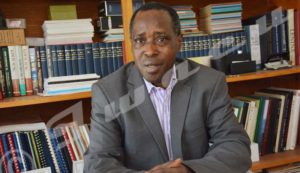 “The spirit of the Arusha Accord remains engraved in the hearts and memories of Burundians, the region and the international community,” said Léonce Ngendakumana, vice president of Sahwanya FRODEBU party. For him, Mandela’s legacy still exists. He believes there are signs that do not deceive notably the resistance of the vast majority of Burundians to the point of accepting death, prison and exile, the efforts of the EAC, the AU, the UN and the EU. Mr Ngendakumana adds that President Nkurunziza’s recent statement is not a coincidence.
“The spirit of the Arusha Accord remains engraved in the hearts and memories of Burundians, the region and the international community,” said Léonce Ngendakumana, vice president of Sahwanya FRODEBU party. For him, Mandela’s legacy still exists. He believes there are signs that do not deceive notably the resistance of the vast majority of Burundians to the point of accepting death, prison and exile, the efforts of the EAC, the AU, the UN and the EU. Mr Ngendakumana adds that President Nkurunziza’s recent statement is not a coincidence.
On the question of whether the divergent interpretations of the Constitution in 2015 would have occurred if Mandela had been alive, Mr. Ngendakumana says it is difficult to answer this question spontaneously. He however thinks Mandela would not have accepted that the achievements of an agreement he has supported be questioned.
Pancrace Cimpaye: “We must preserve Nelson Mandela’s legacy in Burundi”
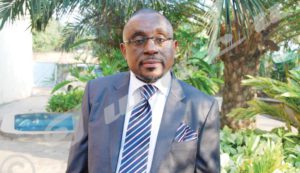 The spokesman for the opposition platform in exile says this day is celebrated in pain. The pact he bequeathed to Burundians was buried on June 7, 2018 when the new constitution was promulgated. For this, he calls on the guarantors of the Arusha agreement to honor their engagement to preserve the Arusha Accord for peace and reconciliation. Pancrace Cimpaye also deplores the absence of another Mandela in the resolution of the Burundian crisis. “Mandela moved heaven and earth for the cause of peace in Burundi and did not hesitate to wake the president of the United States to submit a request for funds” he says.
The spokesman for the opposition platform in exile says this day is celebrated in pain. The pact he bequeathed to Burundians was buried on June 7, 2018 when the new constitution was promulgated. For this, he calls on the guarantors of the Arusha agreement to honor their engagement to preserve the Arusha Accord for peace and reconciliation. Pancrace Cimpaye also deplores the absence of another Mandela in the resolution of the Burundian crisis. “Mandela moved heaven and earth for the cause of peace in Burundi and did not hesitate to wake the president of the United States to submit a request for funds” he says.
Abel Gashatsi: “Mandela’s legacy is still preserved”
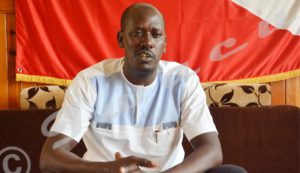 The UPRONA party president says the legacy of the former South African president is still visible. “We have the institutions that resulted from the Mandela-sponsored Arusha Agreement,” he says. Ethnic quotas in the army are respected. He indicated that all the commissions recommended by the Arusha Accords are at work. He mentions the Truth and Reconciliation Commission-CVR which will allow Burundians to complete the process of reconciliation as advocated by Mandela.
The UPRONA party president says the legacy of the former South African president is still visible. “We have the institutions that resulted from the Mandela-sponsored Arusha Agreement,” he says. Ethnic quotas in the army are respected. He indicated that all the commissions recommended by the Arusha Accords are at work. He mentions the Truth and Reconciliation Commission-CVR which will allow Burundians to complete the process of reconciliation as advocated by Mandela.
Sylvestre Ntibantunganya: “He is the architect of the Arusha Agreement”
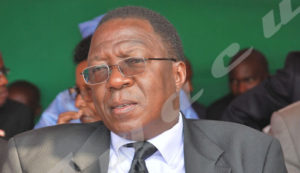 “President Nelson Mandela’s legacy is not limited to Burundi alone. It even goes beyond his own country. A world heritage of humanity, “says former Burundi President Sylvestre Ntibantunganya.
“President Nelson Mandela’s legacy is not limited to Burundi alone. It even goes beyond his own country. A world heritage of humanity, “says former Burundi President Sylvestre Ntibantunganya.
In addition, he says, this global icon of freedom had a stature allowing him to address in clear terms any Burundian negotiator in Arusha.
“One can see how Mandela addressed President Buyoya and the other heads of delegation when he saw that he was dragging his feet to make decisions that were necessary for the peace of the Burundian people,” says President Ntibantunganya .
According to him, Burundi had a great world figure “and that is what gives value, importance to this Arusha Agreement that he helped us to achieve”.
Written by Arnaud Igor Giriteka and
translated by Pierre Emmanuel Ngendakumana

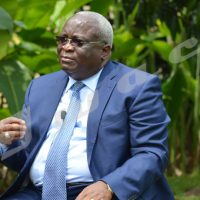
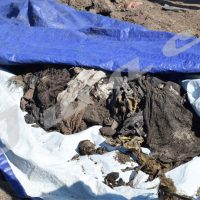
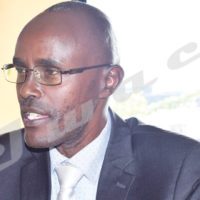
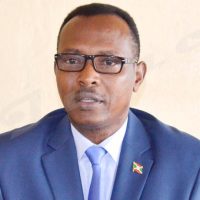
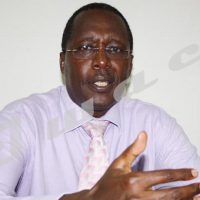













 IWACU Open Data
IWACU Open Data

